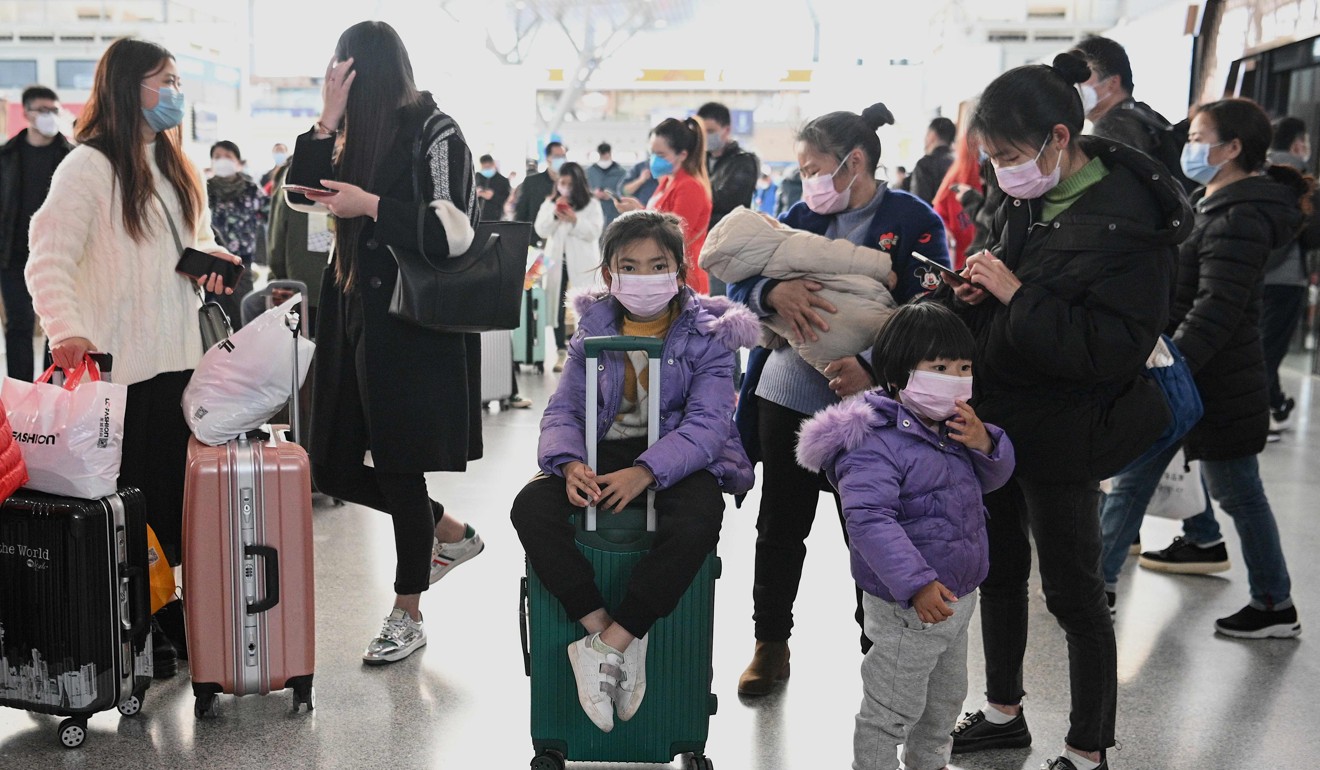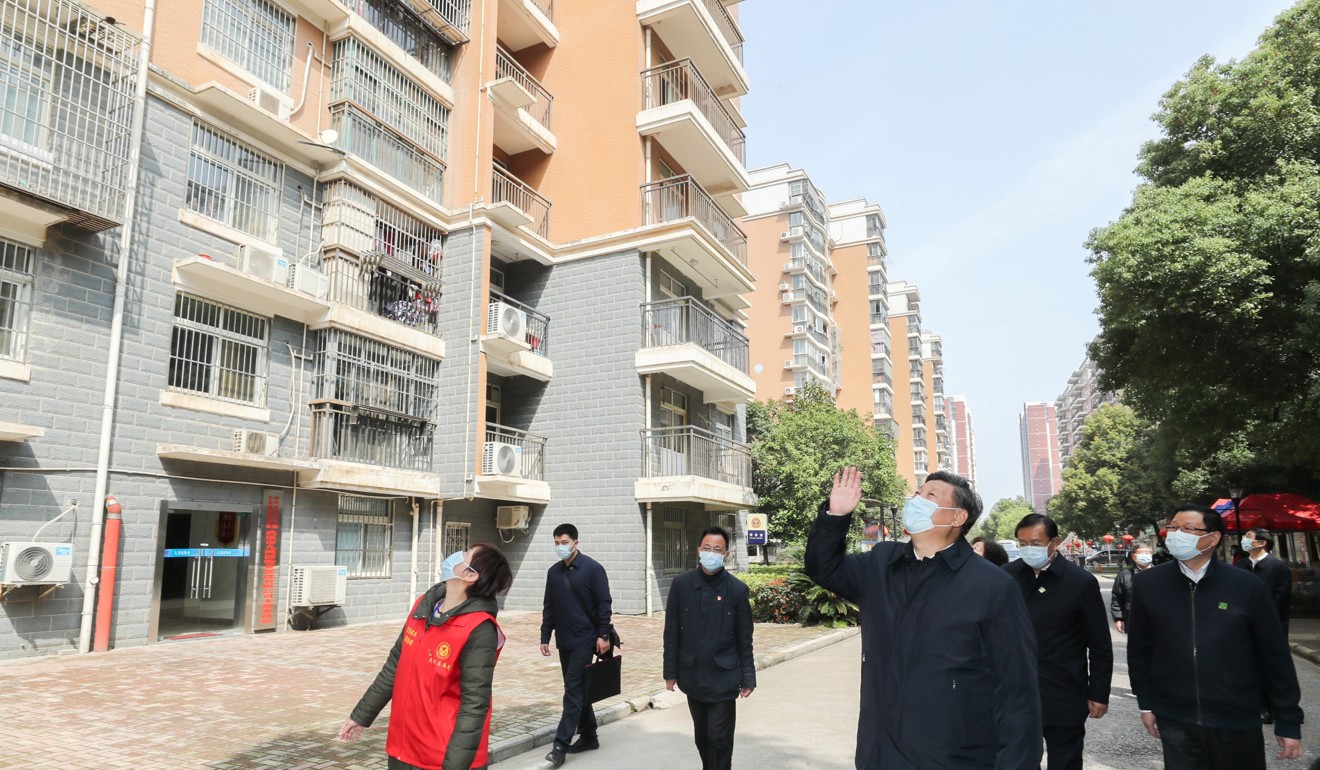
Coronavirus: Xi says the tide has turned, but people deserve the truth about China’s response
- While Beijing deserves kudos for its handling of the Covid-19 outbreak, it should provide a full accounting of its initial blunders
- An authoritative special commission looking into the early stages of its approach would help restore public confidence in the government
So Xi’s arrival on Tuesday should have come as no surprise, as it was meant as a clear message that China is winning the “People’s War” against the disease that has infected more than 80,000 people in the country since December, killing more than 3,000.
He claimed China’s draconian measures – including locking down the entire province, which has a population of 60 million people – had achieved initial success in “stabilising the situation and turning the tide”.
China’s coronavirus battle may be ending but its war on eating wild animals has just begun
Xi needs this win. Even the official Xinhua news agency admitted that the public health crisis represented one of the biggest tests of his eight years of governance, during which he has completely transformed how the country is governed and has made himself its most powerful leader since Mao Zedong.
His trip would help reassure the jittery nation amid widespread criticism of the government’s initial handling of the outbreak, which included downplaying risks and suppressing information as well as bureaucratic inertia.

Coronavirus: a chance for China to boost its world standing?
The Chinese leadership’s credibility has taken a heavy beating at home and abroad because of its initial bungled handling of the outbreak, reminding many of the government’s poor early response to the severe acute respiratory syndrome (Sars) outbreak in 2002. Covid-19 and Sars are believed to come from the same family of coronaviruses.
As a popular Chinese idiom goes, the same thing should not happen three times. A thorough investigation into and a full public accounting of the causes and harms of the government’s initial blunders will not only ensure the same misfortune will not strike a third time, but also go a long way towards restoring public confidence in the government and allowing people to have closure.
This calls for the formation of an authoritative, broadly represented special commission that should include not only officials but also representatives of the victims’ families, medical professionals and other people involved.
Unfortunately but unsurprisingly, Chinese officials are still keen to resort to the well-worn tactic of merely acknowledging “shortcomings and weak links” in their initial response to the outbreak, and cranking up the propaganda machine to extol the party leadership in a time of crisis.
But the over-the-top propaganda has proved counterproductive and on several occasions triggered a strong backlash on social media, the only avenue for ordinary people to voice their grievances despite tough censorship.
Late last month, when much of China was under lockdown and hundreds of millions of people forced to stay home, propaganda officials announced the launch of a book named A Battle Against Epidemic in Chinese and five other languages. The book was to show the “strength” of the party’s leadership and China’s socialist system in the ongoing fight against the disease, according to a press release read on national prime-time television news.
Coronavirus response highlights flaws in the way China’s bureaucracy handles a crisis
How they misjudged the national mood. The subsequent torrent of online criticism has apparently forced the publishers to delay the launch of the book.
On March 6, the newly installed party secretary of Wuhan, Wang Zhonglin, made himself a target of ridicule after local media quoted him as proposing a citywide campaign to teach the cooped-up residents to “be grateful” for Xi and the party, and “listen to the party and follow the party”.
The backlash on social media was fast and furious, forcing the authorities to take Wang’s offending remarks offline.
Wang’s misstep was not off the cuff or due to his bad public relations skills. In fact, his blunder reflects the innate thinking and arrogant narrative of China’s bureaucrats – which can be traced back to feudal dynasties – that the people should always feel grateful for whatever the government does or gives despite the propaganda that it is the servant of the people.
Some social media users were right on point when they noted that when a disaster struck, it was the government’s natural responsibility to act and help the affected.
In his visit to Wuhan, Xi lavished praise on the city’s residents, calling them “heroes” and saying that with their sacrifices and devotion, they have demonstrated their strength and the spirit of China. The party and the entire nation should be grateful to them, he said.
The coronavirus is no Chernobyl, but a wake-up call for China’s top-down autocratic rule
Interestingly, Xi called for understanding and tolerance for people who had vented their feelings after being quarantined for a long time. But on the day of his brief visit to a neighbourhood of high-rise buildings in Wuhan, social media posts showed pictures of security officers stationing themselves on the balconies of flats facing the yard Xi walked through to ensure certain residents would not shout anything embarrassing.
Even more interestingly, while the president was in Wuhan, China’s enterprising social media users and ubiquitous online censors engaged in a remarkable game of cat and mouse. The netizens tried to post an article about a Wuhan doctor recounting her horrible experiences of seeing virus-struck patients dropping dead in front of her in the initial cover-up period, but saw their posts in various forms erased quickly by censors.
It later reached a comical level when the online users started to post the article in foreign languages, including Hebrew, or even versions in which words were mixed with emojis, but the censors still managed to quickly block them – and screenshots of those blocked versions circulating on social media have themselves become a form of protest.

According to the article, Ai Fen, head of the emergency department at Wuhan Central Hospital, was the first person to alert her superiors and colleagues about a Sars-like virus on December 30 after receiving infected patients as early as December 16.
One of her colleagues was eye doctor Li Wenliang, who passed the information to other doctors who spread the information more widely over social media. Li was cautioned by the police for spreading rumours and later died of the virus, with the news of his death becoming a rallying cry against the cover-up. The censored article also said Ai herself was reprimanded by her superiors for alerting other doctors about the virus, and it remains unclear whether her latest interview would land her in more trouble.
Coronavirus: what Xi fears most is Chinese turning on the Communist Party
Let’s hope not. In fact, the massive reactions Ai’s interview has triggered on the internet again highlight the need to give the public a full accounting of the government’s initial response to the outbreak. For instance, Xi reportedly issued demands on controlling the epidemic at a closed-door meeting of top officials on January 7, but health officials in Hubei province, Wuhan city, and at the national level kept denying the virus could spread between humans.
Although they later changed their narrative by admitting some cases of limited transmission from person to person, these officials still gave assurances that the outbreak was under control until January 20 when Xi publicly called for all-out efforts to contain the outbreak.
Why did those officials fail to heed Xi’s demands on January 7? This is just one of the many important questions that remain unanswered and the people, particularly family members of the deceased, deserve to know the truth. ■
Wang Xiangwei is the former editor-in-chief of the South China Morning Post. He is now based in Beijing as editorial adviser to the paper
Purchase the China AI Report 2020 brought to you by SCMP Research and enjoy a 20% discount (original price US$400). This 60-page all new intelligence report gives you first-hand insights and analysis into the latest industry developments and intelligence about China AI. Get exclusive access to our webinars for continuous learning, and interact with China AI executives in live Q&A. Offer valid until 31 March 2020.

